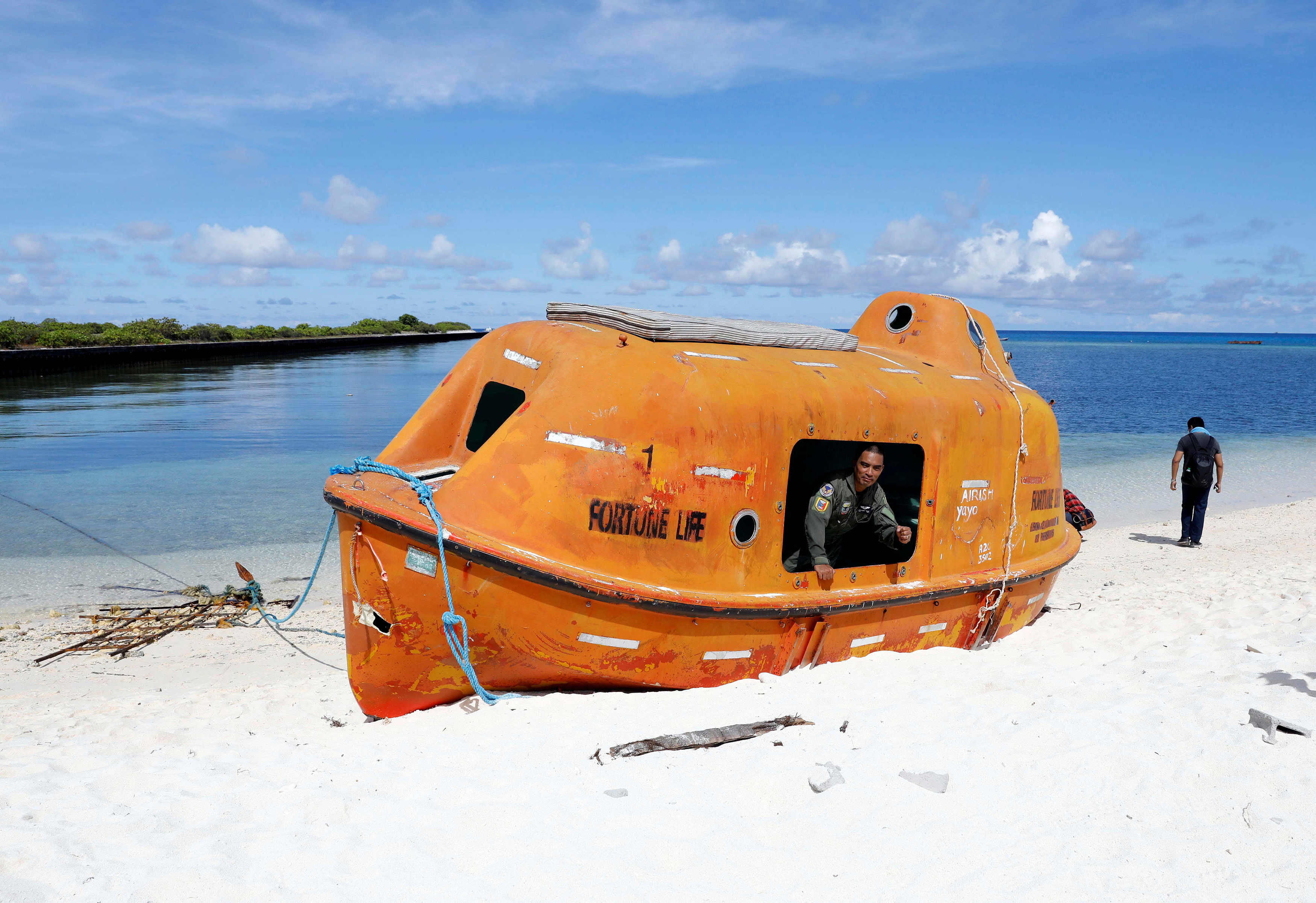Since the July 2016 Arbitral Award between the Philippines and China that found unanimously in favour of the Philippines, little appears to have changed in the South China Sea. China has not withdrawn from the disputed islands and rocks and has continued with its island-building activities, further raising concerns over its militarisation of the islands. Last month, the USS Dewey conducted a freedom of navigation operation in the vicinity of Mischief Reef, which resulted in a Chinese rebuke.
But otherwise, the Donald Trump administration has not spelt out any clear strategy for how it will seek to broker a resolution to the region's numerous land and maritime disputes.
Likewise, while the recent Group of Seven summit in Italy reaffirmed a commitment to a "rules-based order in the maritime domain" based on the principles of the 1982 United Nations Convention on the Law of the Sea (Unclos) and expressed concern about the situation in the South China Sea, no concrete proposals were put forward for a way forward in the region.
With no apparent new diplomatic initiative on the table, resolution of the South China Sea's territorial and maritime disputes, therefore, appears to have reached something of an impasse.
Nevertheless, there are some indicators that China and the Philippines may be open to some creative diplomacy to resolve this impasse. For example, China flagged in its 2016 White Paper responding to the award the potential for those engaged in the South China Sea to move forward through "establishing and improving dispute-management rules and mechanisms", including "promoting joint development while shelving differences".
This concession by China to consider joint development in the region could pave the way for a "sovereignty neutral" negotiation in dealing with the region's valuable fishing and hydrocarbon resources.
Some of these options could include joint development, which has been adopted in the Gulf of Thailand by Malaysia, Thailand and Vietnam, or referral to arbitration for settlement of the unresolved territorial disputes.

The stalemate since the July 2016 Arbitral Award suggests the time is ripe for innovative diplomatic solutions. Could a dedicated South China Sea Commission be the answer?
A 15-member commission with a mandate to facilitate mediation, conciliation and ultimately arbitration of the disputes would provide both an informal and formal third-party mechanism capable of dealing with the disputes at both a bilateral and regional level. Under this model, each of the six claimants in the wider South China Sea (Brunei, China, Indonesia, Malaysia, the Philippines and Vietnam) would appoint a commission member, with the remaining nine members appointed from outside the region.
The commission's reach could extend to both land and maritime disputes, including islands, rocks and other small maritime features such as reefs and shoals. Its mandate could also extend to determining maritime entitlements and maritime boundaries consistently with Unclos, excepting the continental shelf beyond 200 nautical miles that is addressed through a separate UN process.
Commission members would be diplomats and jurists with expertise in territorial and maritime disputes, assisted by a staff of permanent technical experts including geographers, historians, hydrographers and marine scientists.
The commission could be established under a negotiated treaty framework, whereby each state gives its consent. A secretariat would need to be established, preferably located within the region, with an operating budget to which all participants would contribute.
Such a commission would be entirely consistent with Article 33 of the UN Charter, which encourages regional solutions to disputes and would add to the already-extensive range of peaceful means and methods of dispute resolution that are already available. These include the International Court of Justice and Permanent Court of Arbitration in The Hague, and the International Tribunal for the Law of the Sea in Hamburg.
However, while all these courts and tribunals have the capacity to resolve all or some of the South China Sea disputes, they have a weak track record with the disputing states. For example, Brunei, China, the Philippines and Vietnam have never appeared in a contentious case before the International Court of Justice or the International Tribunal for the Law of the Sea.
A South China Sea Commission, in contrast, would not be located in the heart of Europe, but within Asia. Commission members could predominantly come from within the region. As Singapore does not have a contested South China Sea claim, it could be a neutral regional location for the commission.
There are no new initiatives being promoted to resolve the South China Sea disputes other than a longstanding Asean desire to see a Code of Conduct concluded.
While there is an Asean expectation that the code may be concluded by mid-year, in the absence of creating legally binding obligations, its impact must be questioned. It would, in any event, not resolve underlying territorial disputes.
A South China Sea Commission, in contrast, would allow for creative legal solutions through the flexibility of mediation or conciliation, with legally binding arbitration a last resort. Such an approach could be a regional legal solution for a regional problem.
• The writer is professor of international law at the ANU College of Law, Australian National University.
